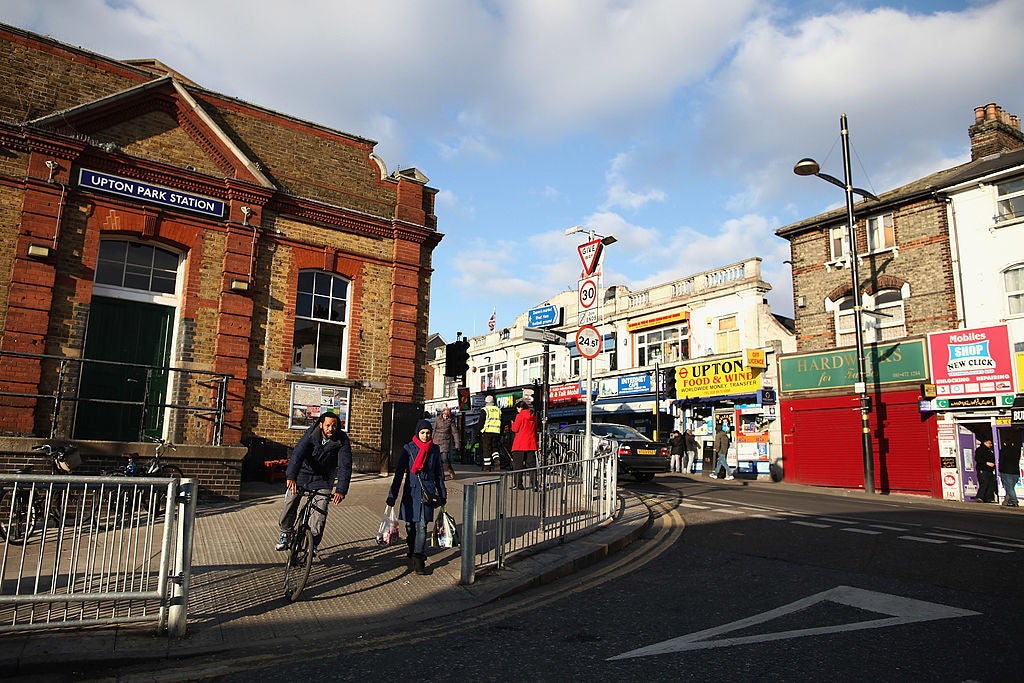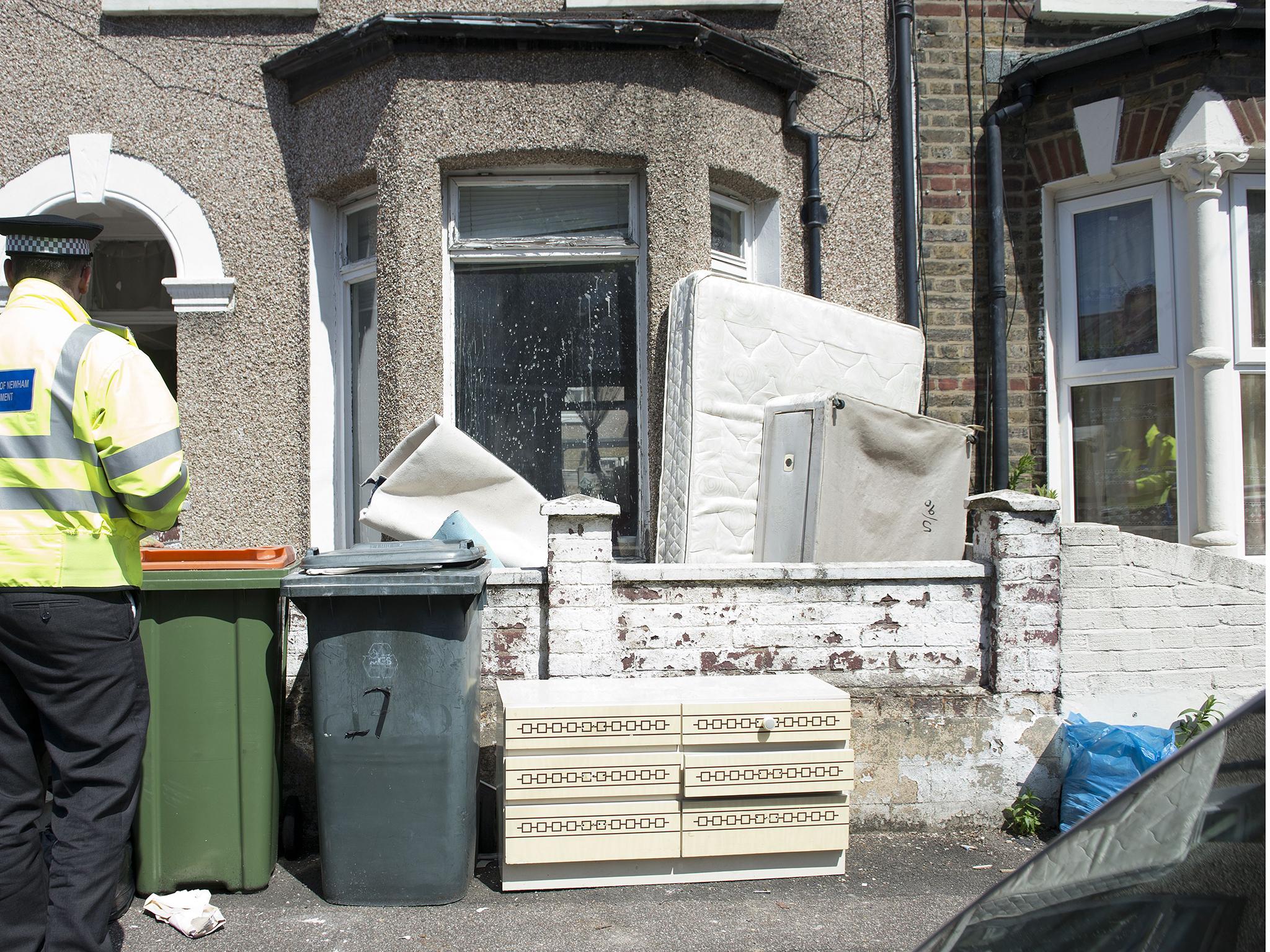As a public body, Newham has a duty to come clean on its finances
Despite a restructuring of accounts, which should be saving council-tax payers millions, an investigation has revealed that Newham Council’s debt levels are still rising. James Moore reports

Britain’s Olympic borough, Newham, has reported an alarming rise in debt interest and borrowing despite an apparent victory for council-tax payers that saw the authority saving millions of pounds through restructuring a huge portfolio of controversial loans.
An analysis of the borough’s accounts revealed that Newham’s borrowing surged during its most recent financial year to £804m from £731m, an increase of £73m, or nearly 10 per cent.The authority’s financial statements also show that it paid £84m in interest during the 2016/2017 accounting period, up from £51m the previous year, an increase of nearly two thirds.
Despite the surge in economic activity brought by the Olympics, Newham remains one of the poorest boroughs in Britain. In Feburary, local residents secured what appeared to be a major victory after the council agreed with its lender, Barclays, to overhaul £248.5m of LOBO loans – an acronym for lender option borrower option – in a deal which promised substantial savings.
LOBO loans have become hugely controversial because they allow lenders to unilaterally raise interest rates at points during their term. As a result they have been described as a “one way bet” in favour of the banks that sold them. Newham had been one of the most enthusiastic LOBO borrowers among local authorities.
The deal with Barclays to convert the LOBOs into more conventional debt will save residents £1.6m annually and nearly £100m over the 60-year term of the debt.

Campaigners have since pushed for negotiations to similarly restructure the rest of the portfolio. Much of it is with the state-backed Royal Bank of Scotland.
However, the authority’s interest payments and debts have gone on rising despite the promised saving. Joel Benjamin, from Debt Resistance UK, said council-tax payers should be outraged at the numbers.
He said: “For Newham residents still reeling from discovering 80 per cent of council tax went to banks in 2016, a staggering £33m increase in debt interest repayments this year (to 125 per cent of council tax equivalent) could see residents of the Olympic host borough howling in fits of rage.”
When The Independent approached Newham to ask for an explanation, the council said only that “this year’s interest payable and similar charges include a one-off impairment of a financial instrument”. It said this was unrelated to the LOBOs. It did not respond to multiple subsequent requests for information on what the “one-off impairment of a financial instrument” might involve.
Councils have been given increased freedom to borrow money in recent years, and campaigners worry about how some of them have used that power, citing LOBO loans as just one of the problems that has arisen.
It comes against a background of cuts of up to 40 per cent in central government grants, imposed as a result of the Coalition Government’s austerity drive, which continued under the subsequent majority Conservative Government. Low interest rates have seen some local authorities taking to speculation in an attempt to generate returns. Others have launched business ventures.
However, critics have voiced concern about councils’ commercial and financial activities, arguing that service providers are often ill equipped to deal with the risks they are taking on as a result. They point to the Icesave debacle. It saw local councils pouring money into Icesave and other Icelandic banks to take advantage of the market-busting interest rates they were offering in the run-up to the financial crisis of 2008.
They lost a combined £1.05bn in the wake of the banks’ collapse, and while the lion’s share of the money was ultimately recovered, it was only after a long battle. Campaigners argue that those events should have served as a salutary lesson but that many councils have still not learned from it.
In addition to its borrowing, Newham is one of the councils that has taken to commercial ventures. In 2014 it set up Red Door Ventures, which is billed as a commercial residential property developer. Created as an independent company, wholly-owned by the council, Red Door says its focus is on “developing high-quality residential homes in the private rented sector to be held long term”.
One aim is to build more than 3,000 new homes in Newham for “people with busy lives who are not ready to buy and want stylish places to live in”.

Critics such as Mr Benjamin highlight the risks associated with commercial ventures like this, pointing out that if a council-owned venture were to go wrong, council-tax payers would inevitably end up footing the bill through higher costs. Residents could also face cuts to local services, in addition to those already made in response to the Treasury’s austerity drive.
In its accounts, Newham identifies its three biggest risks as “changes to grant funding, the new business rate retention scheme and increasing demand for services”. The failure of commercial activities is not among eight key risks in total highlighted in the document, although it does identify that a “slow down in growth could result in an extended period of low interest rates affecting investment returns”.
Rachel Collinson, a Newham resident who was involved in the early stages of the campaign against LOBOs, said of the figures: “Newham Council is about as transparent as a door made out of lead. As a resident, it is frustrating when you are worried about their runaway debt, to be told, in effect, ‘nothing to see here, move along’.”
Ms Collinson, who is small business spokesperson for the Green Party, continued: “I have been kicked out of meetings, refused access or ignored when I wanted to know more about their various exotic financial arrangements. After more than two years of that, you tend to conclude that they have something to hide.”
Mr Benjamin called for Newham to come clean over its contracts and financial market dealings and provide “access to residents, journalists and elected council officials”. He believes bodies such as the National Audit Office should play a greater role in forcing councils to improve access to their financial dealings.
Newham currently has 59 Labour members and just one independent and so faces little democratic scrutiny. The council still has £315m of LOBO loans on its books, even after the restructuring agreed with Barclays.
Democratic accountability demands that Newham explain its debt problems
Campaigner Joel Benjamin likened getting information out of Newham Council to getting blood from a stone. He has a point. The council’s accounts are striking in that, despite the savings reaped through restructuring a hefty chunk of its controversial LOBO loans, interest payments have surged. Borrowing has also increased sharply.
So why? You would have thought this would have been an easy question to answer, but apparently not. A week after raising it, I still don’t have an answer beyond something about the one-off financial impairment of a financial instrument.
What does that even mean?
I’ve been a financial journalist for two decades now and I can testify that getting information out of big public companies isn’t always easy, despite the growing numbers of well remunerated PR people they employ.
However, even though they are not always quick, you can usually count on getting an answer to your question if you find something interesting in their accounts, such as an increase in borrowing or debt interest, or if you see statements concerning one-off impairments of financial instruments.
Newham, as an elected local authority, arguably has even more of a duty to come clean about such things. Democratic accountability demands nothing less. And yet, despite repeatedly asking for clarification about that one-off impairment of a financial instrument the council gave as an explanation for the surge in its debt interest I have yet to receive an answer.
The question of the sharp increase in council borrowing has also gone unanswered. This goes beyond a journalist’s natural frustration at obfuscation or at not getting a response to rather simple questions. It is deeply troubling behaviour on the part of a public body. Were the authority to have a strong opposition, it might be able to raise the question, but, of course, Newham doesn’t have that.
The Grenfell fire, in the Conservative dominated borough of Kensington & Chelsea, has thrown an unflattering spotlight on the workings of local government, and on council finances.
The issues I’ve discovered at Newham, Britain’s Olympic borough, pale by comparison to that. But, they are deeply disquieting nonetheless.
Join our commenting forum
Join thought-provoking conversations, follow other Independent readers and see their replies
Comments